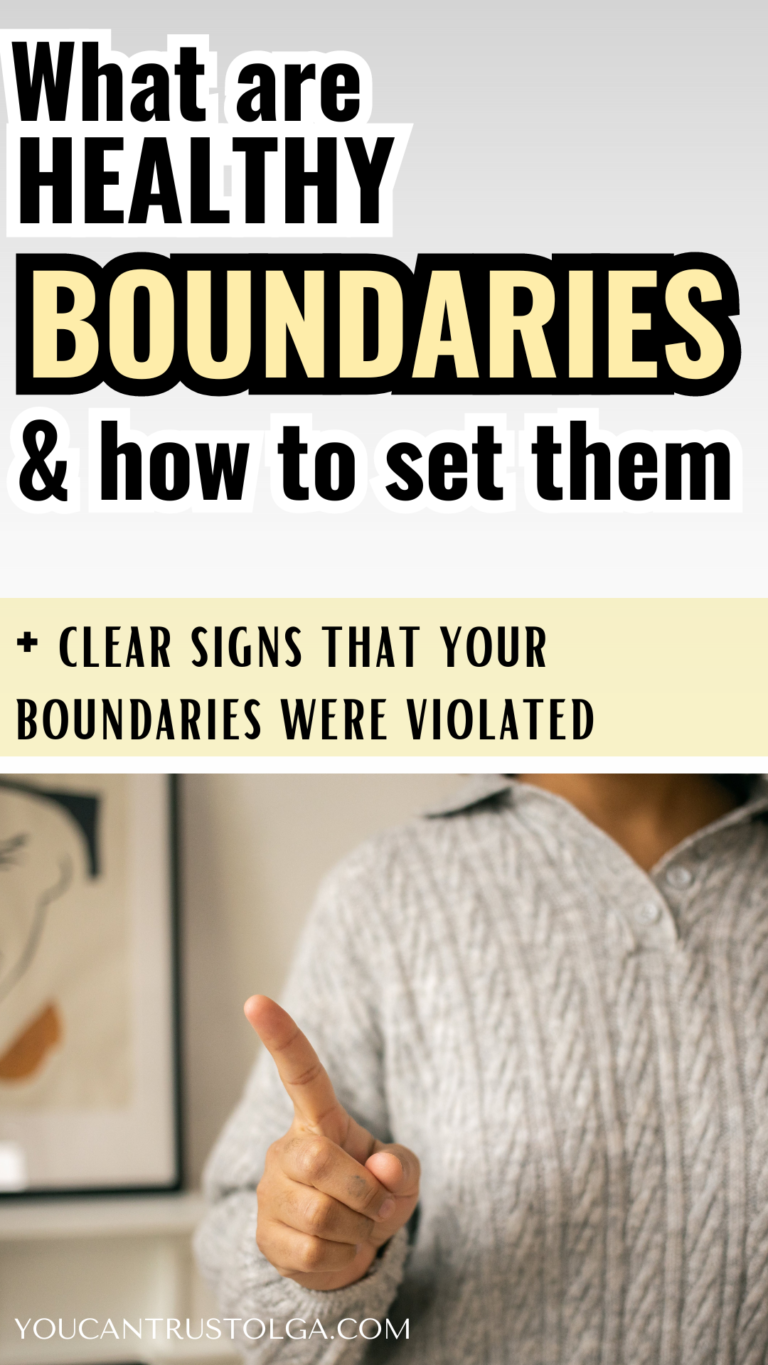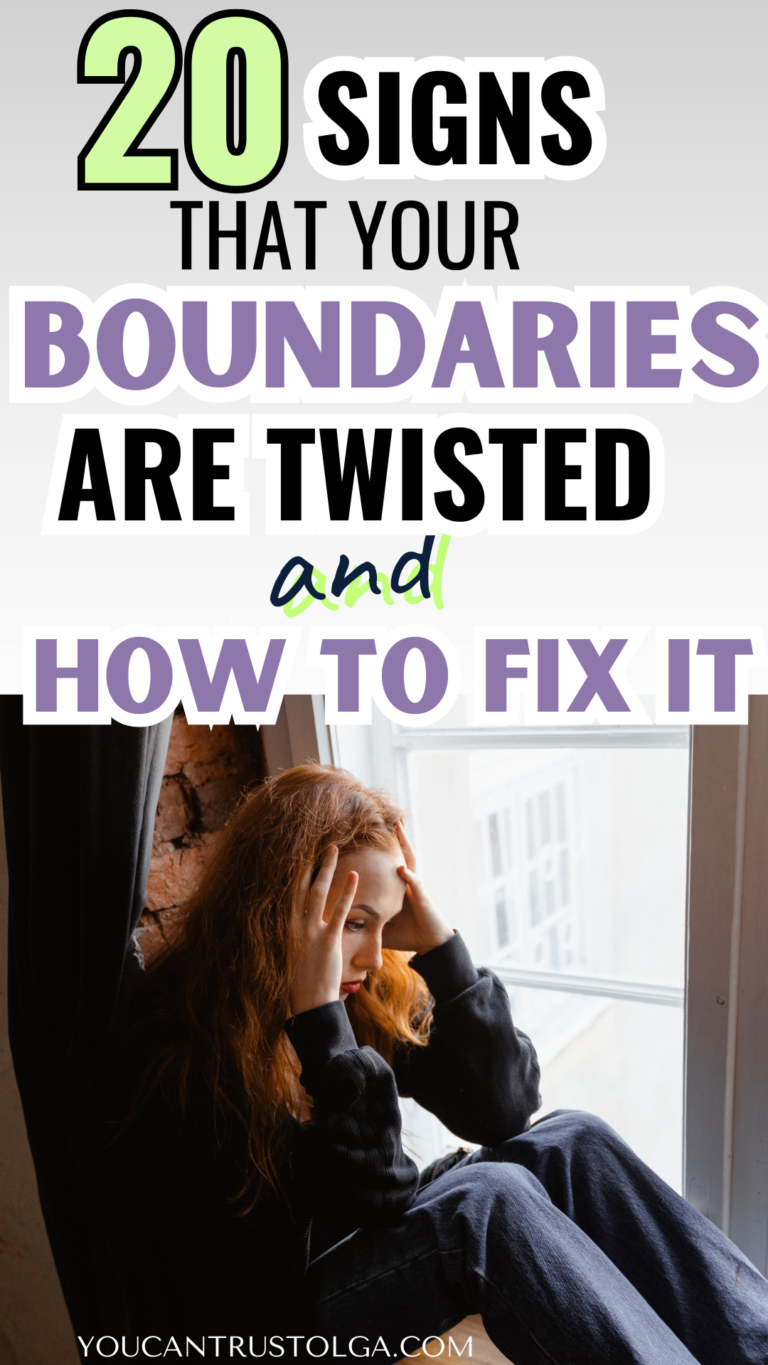“Why did you break up?” “ When are you going to have kids?” “How much do you make?”
These questions can sometimes make you feel uneasy and frustrated, even if they come from well-meaning friends or family, let alone a stranger.
Certainly, boundaries are essential for maintaining healthy relationships and protecting our well-being, but the line between being open and protecting our boundaries can be blurry.
In this article, we will explore what boundaries are, why they are important in all aspects of our lives, and how to set healthy boundaries. Let’s get to it.

It’d be very convenient indeed if each person came with a clear set of instructions. In this case, we can know right away to what extent they are allowed to be touched; what topics are ready to discuss; to what degree their minds are open; and whether or not they are willing to let us in their lives.
And wouldn’t it be amazing if these instructions changed in real-time, adjusting to our evolving needs, moods, and life circumstances?
But alas, such instructions are non-existent.
So we can only assume where each person’s boundary ends, and continue to base our guesses on personal interpretations of the ambiguous signs we receive from others. Oh well!..
Truth be told, even defining our own boundaries can be a challenge. What does it look like?
For instance, having a late-night call with a friend just because it’s more convenient for her.
Or giving a ride to a colleague who, out of habit, immediately lights up a cigarette in your car.
Or spending your small vacation on a fishing trip, only to please your husband.
Or tolerating others’ snide remarks about your body size. Sounds familiar?
What is a personal boundary?
Personal boundaries are the invisible yet essential "fences" that separate a person, their habits, aspirations, actions, and thoughts from the outside world.
They are necessary to safeguard our individuality and what is valuable to us – time and energy, emotions and feelings, cultural, religious, and ethical values, sexuality, personal space, and even belongings.
EXCESSIVELY HIGH, IMPENETRABLE BOUNDARIES can isolate you from the world and lead to loneliness.
NOT HAVING BOUNDARIES can make you lose your identity and feel stressed by constant external interventions.
RELATED READING
Why Do I Feel So Bad About Myself? Understanding the Reasons
Why establish personal boundaries
Properly set personal boundaries:
- Assist us in building healthy relationships with the outside world
- Help us to protect our self-esteem
- Enable us to prioritize what matters most
- Help us to maintain a balance between different aspects of life
Why should personal boundaries be flexible?
Flexibility is one of the most critical traits for the successful adaptability of the human species in this world
It is equally important when setting boundaries. That is completely normal for personal boundaries to vary with different people and situations. In fact, it is NOT normal if they are not.
No one can accuse you of double standards or hypocrisy if a certain context makes communication with someone or a situation uncomfortable for you. On the contrary, flexible boundaries help us distribute energy correctly and avoid wasting it (especially for internal struggles with discomfort).
Also, as paradoxically as it sounds, flexible boundaries allow you to be vulnerable. They let you be weak, imperfect, and therefore alive.
For instance, when going through a crisis and pressured with unsolicited advice, you may want to shut everyone out, which can worsen your state. On the contrary, if you acknowledge and voice that you are not yet ready for the discussion, it will be easier for you to take the first step – to break your own boundaries and engage in an open conversation when you feel safe.
What causes our boundaries to become unhealthy?
The roots of violated boundaries trace back to childhood, when parents were the ones crossing the line. Now, being adults, we unconsciously project these resentful protests onto others.
The underlying emotion behind it is fear – fear of rejection, fear of conflict, of being perceived as bad, selfish, or unreasonable. As a result, we develop a habit of either yielding our own boundaries and intruding on others’, or on the opposite, rigorously defending our own.

“If saying ‘no’ and asserting your boundaries feels scary, take a moment to consider: What is it that you fear about this situation? Being seen as selfish, indifferent, or angry?
But is that truly the case? Maybe if you decline someone’s request, it won’t be such a heinous crime in their eyes.
Take a minute to reflect on your childhood experiences. You may find that you still act similarly to how you behaved back then, either in the same way or in the complete opposite manner.
Were your boundaries crossed? Emotional, physical, or value-based boundaries?
Did you have siblings?
Did you have your own space, a room, a bed, a corner? Did you have your own clothes and toys?
Were you allowed to express dissatisfaction and assert yourself? How did your parents react to your boundary-setting?
Types of Personal Boundaries
Physical boundaries
Our skin serves as the first and fundamental boundary.
Take a moment to reflect on the following questions to see if your boundaries are being respected by others.
Who is allowed to touch you and how? What do you consider your personal space that needs to be protected? Do you have a place in your home where you can spend time alone?
Sexual Boundaries
Define your own comfort level when it comes to sexual actions and touch. You are the only one who determines what is acceptable and what is not, where, when, and with whom.
Stick to these boundaries and don’t stay silent when they are violated
Material Boundaries
Think about what actions you consider permissible and which ones you consider impermissible regarding your own property. Ask yourself next questions:
What can you gift? Lend?
How much money are you willing to lend at most? Do you let others use your car, clothes, or apartment?
Who enters your home? Whom would you prefer not to see there?
This also applies to your children’s friends: which rooms in your house are not open to guests?
Do guests take off their shoes? Do they eat or smoke in your car?
These are all things that should be determined solely by you as the homeowner.
Remember it is only you who determines this, and these boundaries can vary greatly for different people.

Emotional Boundaries
You are responsible for your own feelings, just as others are responsible for theirs. Refuse to let anyone vent their anger on you or make derogatory remarks about your weight, appearance, or age. And don’t do it to others either.
Healthy emotional boundaries protect you from blaming others or taking their blame upon yourself.
They also prevent you from feeling guilty for someone else’s decisions or problems and from giving unsolicited advice.
If you find yourself justifying, arguing, or defending, it could also indicate weak emotional boundaries.
Can you become aware of your emotions immediately and calmly accept them?
If you ignore them when they first arise or believe you shouldn’t experience such feelings at all (which is quite common), your body will “turn up the volume” until you hear them.
Intellectual Boundaries
Your values, opinions, and thoughts are uniquely yours. And every individual decides what they want to share with others and what to leave unspoken.
Here are the questions for pondering to explore how well you are doing with your intellectual boundaries:
What do you believe in? Can you listen with an open heart to those who express opinions different from yours, without compromising your core beliefs?
How do we cross someone else's boundaries?
Many people unknowingly violate personal boundaries, but there’s always a chance to become aware and gradually improve communication.
Typically, if someone has overly rigid boundaries, they’re likely to treat others the same way. It’s automatic because they simply don’t know any better.
Let’s take a look at the situations that can happen when the boundaries are violated.
- projection of one’s personality onto others,
- blaming others for our problems (“you ruined my life,” “it’s all because of you,” “if it weren’t for you…”),
- controlling their behavior (“you shouldn’t act that way anymore,” “do this, like this and like that”),
- unsolicited advice on how to be (“if I were in your place… you should have done this a long time ago”),
- defining how events should be perceived and interpreted (“any husband would cheat if his wife would be as distant like you”)
- criticizing someone’s appearance and personality (“I am glad you are wearing this dress, the other one made you look fat”).

20 signs that your boundaries are twisted
- You struggle to distinguish what belongs to you and what belongs to others.
- Often, you find yourself doing things just because “normal people/women/real men/good wives/husbands” do, even if you don’t like it.
- Unable to say no, or feel guilt when you do.
- Believe that your happiness and well-being depend on others.
- Utterly trusting others because “they know better”.
- Spend more time solving other people’s problems than your own.
- Don’t pay enough attention to yourself.
- Maintain relationships with people who treat you poorly or whom you don’t love.
- Unable to ask for help or express your needs and desires to others.
- Feel responsible for other people’s feelings.
- Always trying “to save” someone.
- Unable to stand up for yourself when someone is using your personal belongings.
- Yield to the desires of friends/colleagues.
- Find it difficult to voice your opinion or express your thoughts.
- Struggling to be by yourself.
- Sensitive to criticism.
- Often experiencing anger, resentment, guilt, or fear.
- Unable to identify your true desires, goals, values, and needs.
- Afraid to show your true self.
- Trying to please everyone or have a tendency to perfectionism.
How to establish personal boundaries
Our upbringing, culture, mentality, social trends, as well as personality traits, character, life experience, family relationships, and current life situation, all influence how we subconsciously form our personal boundaries.
To become aware of them, you can answer a few questions.
"What do I have rights for?"
This is a simple yet important question – it helps us remember that every person has basic rights that they can exercise. The right to say “no”, the right to decline an offer without feeling guilty, the right to expect respect and to think about your own desires and needs, the right not to meet someone’s expectations, and – importantly – the right to make mistakes.
These are the minimum standards by which you can define your personal boundaries.
"What do I feel?"
This is a situational question that you should periodically ask yourself in various situations.
What do you feel when a friend wants to discuss your personal life? What do you feel when you have to stay late at the office again, or when someone asks about your life situation, touches on the subject of politics, borrows money, or asks for a favor?
"What do I value?"
Personal boundaries can and should be established according to your values. If you haven’t defined them yet, you can brainstorm, write down the top ten, then narrow it down to five, and finally three. Create a short list of fundamental and vital life guidelines.
How often do you find yourself crossing them? What things, people, and situations in life make you live contrary to your ideals?
Understanding this will help identify your blind spots.
How to set healthy boundaries
1. Visualize your boundaries
The first and most important step in defining your boundaries is to make them concrete.
Boundaries are often abstract because we don’t notice them in our everyday lives. However, by visualizing and writing down your boundaries, you can gain much more clarity on where you want to draw the line between yourself and others.
Take some time to reflect on some aspects of your life. Ask yourself:
1. What causes unnecessary stress or discomfort for me?
2. What do I look forward to every day, and what do I fear?
3. Who or what gives me strength?
4. In which areas of my life do I feel exhausted?
5. What makes me feel safe, supported, and valued?
These questions can help you gain a deeper understanding of your boundaries and guide you in setting them effectively.
2. Communicate your Boundaries
A boundary that nobody knows about is NOT a boundary.
It’d be a big mistake if you start setting boundaries within yourself but don’t communicate them to others. If you don’t talk about your boundaries, those around you simply won’t know about them and might accidentally cross them without even realizing it.
Additionally, if you keep your boundaries to yourself, it can create unnecessary hostility between you and other people.
So, give others and yourself some grace.
When you wanna establish personal boundaries, don’t hesitate to say, “I don’t have time” or “I’ve got other plans for the evening.”
If you’re tired but someone asks you to put in more effort for a certain task, just confidently say, “I’m tired, I can’t help right now.”
Same goes for emotional resources – there’s nothing wrong with denying psychological support to another person if you’re emotionally drained. And when someone tries to impose their point of view on you, just say that you respect their opinion, but you think differently.
OFTEN IT IS ALL ABOUT FINDING A PROPER VERBAGE TO COMMUNICATE YOUR BOUNDARIES TO OTHER PEOPLE WITHOUT HURTING THE RELATIONSHIP.
3. Learn to say "no".
The word “no” is magical. It alone solves many potential problems, BUT its effect is significantly weakened when you start justifying your refusal.
If you are asked to do something you don’t want to do, simply politely decline. If you chase your “no” with the tail of justifications, you will look sad and nobody will take your position seriously.
So, simply say “no” and offer an explanation ONLY if you are asked for it.
Certainly, you may be inquired for the reason for your refusal – state it clearly and directly, without making excuses. This way, you will learn to defend personal boundaries and your own right not to do what you do not consider necessary.
Just make sure your refusal is not aggressive, as it will only worsen your emotional state and self-esteem.
4. Take time for yourself
Caring for yourself may seem selfish, especially when you have responsibilities to your family, partner, or colleagues. It’s tempting to devote yourself completely to these people, so as not to feel guilty about neglecting those you should be taking care of.
Losing yourself and forgetting about your own needs is extreme behaviour. It is a direct path to burnout, depression, and other mental illnesses.
Therefore, psychologists recommend dedicating at least two hours a day to yourself.
During this time, you can do whatever brings you pleasure and allows you to sort out your emotions.
Remember, you can’t do any good to others if you are tense, stressed, and irritated. Same as during an airplane emergency – your mask goes on first, and then you help others.
Check out the list of original and non-cliche self-care ideas and pick one that suits your life situation.
5. maintain your boundaries
Not everyone will get the memo about your boundaries right away, especially if you’ve been compliant for a while.
That’s why it’s important to accentuate your position until those around you understand that there are certain aspects of your life in which they have no right to interfere.
If an annoying boss at work asks you to stay an extra 15 minutes, even though your workday is already over and you don’t want to work anymore, don’t hesitate to decline the offer every day until they realize they have to respect your schedule.
This approach not only helps your boss become a more responsible leader but also strengthens your own understanding of your personal boundaries.





